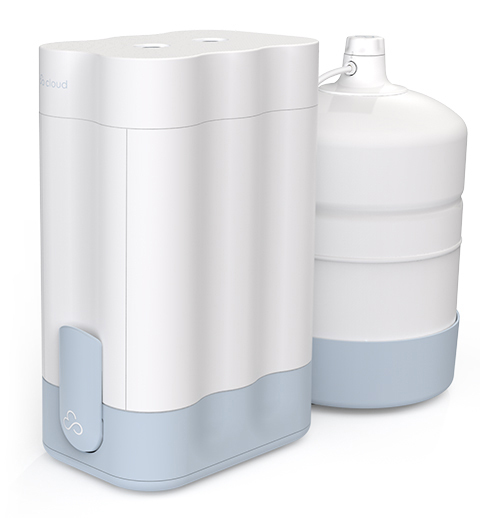What Is an Under-Sink Water Filter?
Under-sink water filters are Point-of-Use (POU), meaning they’re installed right where you need access to clean water, a.k.a. the kitchen sink.
After filtration, the water travels directly to your faucet or refrigerator.
Also, compared to other alternatives, under-sink systems are more convenient to use and easier to maintain.
They have high flow rates and turn your sink into an oasis of pristine drinking water.
From carbon filtration to reverse osmosis, these water systems turn tap water into a 5-star experience.
4 Types of Popular Under-Sink Water Filters
So, trying to decide which type of under-sink water filter is right for you?
Here’s a look at the four most common types of under-sink filters in action:
1. Carbon Filtration Systems
Carbon filtration systems are great if all you want to do is improve the color, smell and taste of your water.
In addition, they remove chlorine, rust, dust and debris, and some even kill bacteria and reduce heavy metals.
The sediment filter removes large particles, the carbon filter removes chlorine and certain toxins, and the third layer of copper and zinc removes heavy metals and kills microorganisms.
Not all carbon systems incorporate this third stage, though, so be sure to read the fine print.
2. Ultraviolet (UV) Systems
If you have a serious threat of microorganisms in your water, then an ultraviolet (UV) system is an excellent option.
UV systems sterilize water by deactivating 99.9% of living organisms.
This can be especially handy if your home is on a private well that isn’t disinfected with chlorine.
In fact, UV treatment kills microorganisms by scrambling their DNA with UV-spectrum light.
Also, most UV systems start with a sediment and carbon pre-filter to remove discoloration, improve taste, and enhance the effectiveness of UV treatment.
Furthermore, UV works on bacteria, viruses, fungi, and parasites like Giardia and Cryptosporidium, which can cause intestinal infections.
3. Ultrafiltration (UF) Systems
People love ultrafiltration (UF) systems because they consume less energy, produce less wastewater, and require less water pressure than reverse osmosis (RO) systems.
Most UF systems start with a sediment and carbon pre-filter, then push the water through a semipermeable membrane with ultra-fine pores.
Furthermore, the contaminants stick to the outer membrane surface and the clean water passes through.
- Lead
- Bacteria and viruses
- Rust and discoloration
- Chlorine taste and odor
- Metallic trace elements (MTEs)
- Volatile organic compounds (VOCs)
However, UF systems do not remove dissolved particles or “hard” minerals that can calcify your pipes and stain appliances.
UF systems also do not remove fluoride, and some studies link long-term fluoride exposure to brain toxicity and lower IQ in children.
4. Reverse Osmosis Systems
If you live in a highly-polluted part of the country, or just want the healthiest water possible, then RO is the way to go.
Also, Reverse osmosis (RO) gives you the most control over your water quality.
Step #1: Sediment filter removes large particles
Step #2: Carbon filter removes chlorine and improves taste
Step #3: Ion exchange resins remove hard minerals and soften the water
Step #4: Reverse osmosis membrane removes toxic contaminants like pesticides and uranium
Step #5: Remineralization adds healthy minerals and balances pH
Also, Performance-wise, most RO systems have a fast flow rate and can easily accommodate a family of six.
Although they produce more wastewater than other treatment methods, you can always install a permeate pump and cut wastewater by up to 85%.
In addition, RO systems protect your pipes from hard minerals and protect your body from 99.9% of dangerous toxins, not to mention optimize your water with essential electrolytes.
Furthermore, Cloud Water Filters even have built-in software that allows you to monitor your water quality 24/7 from an app on your phone.
Click here to learn more.

